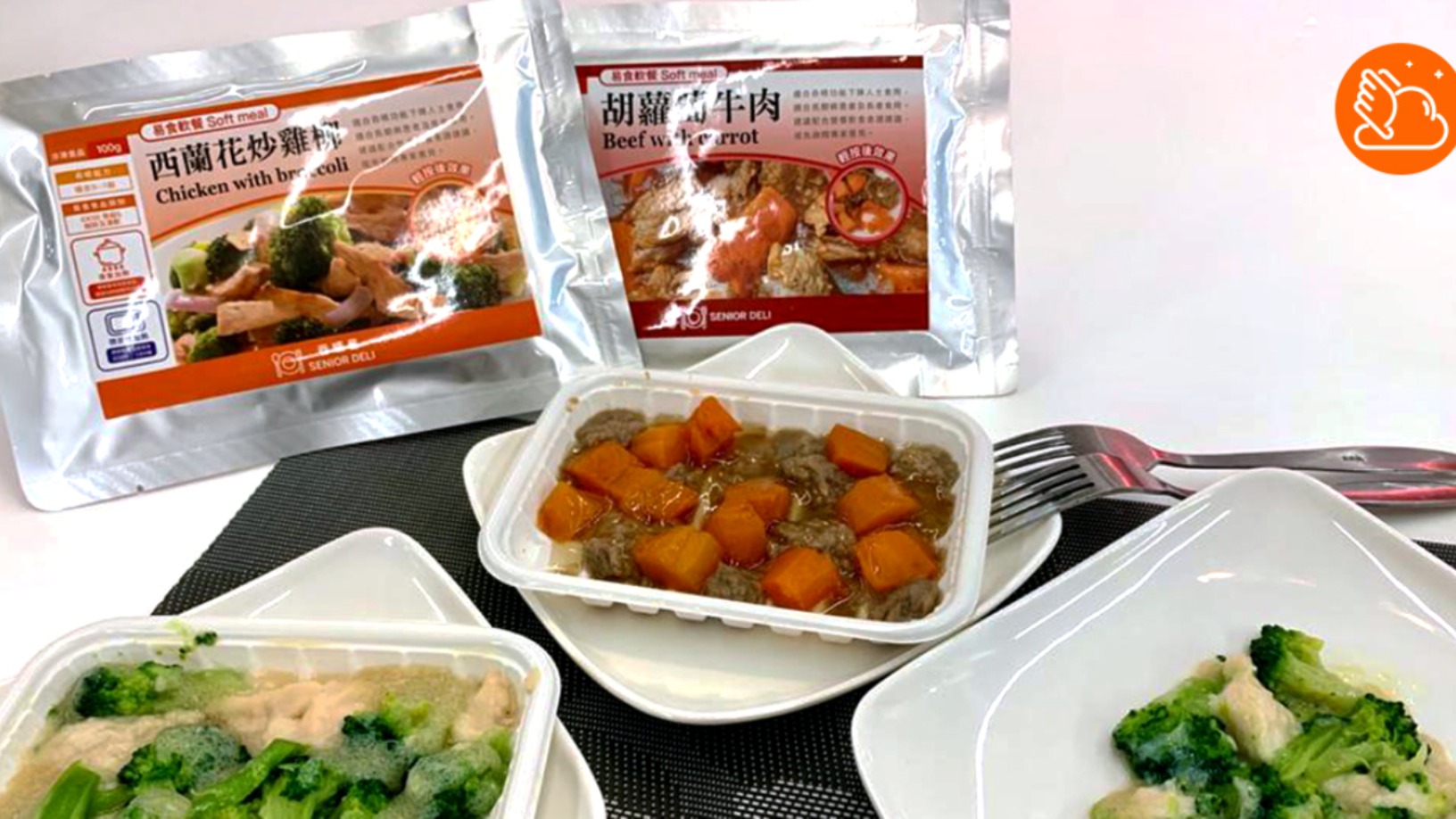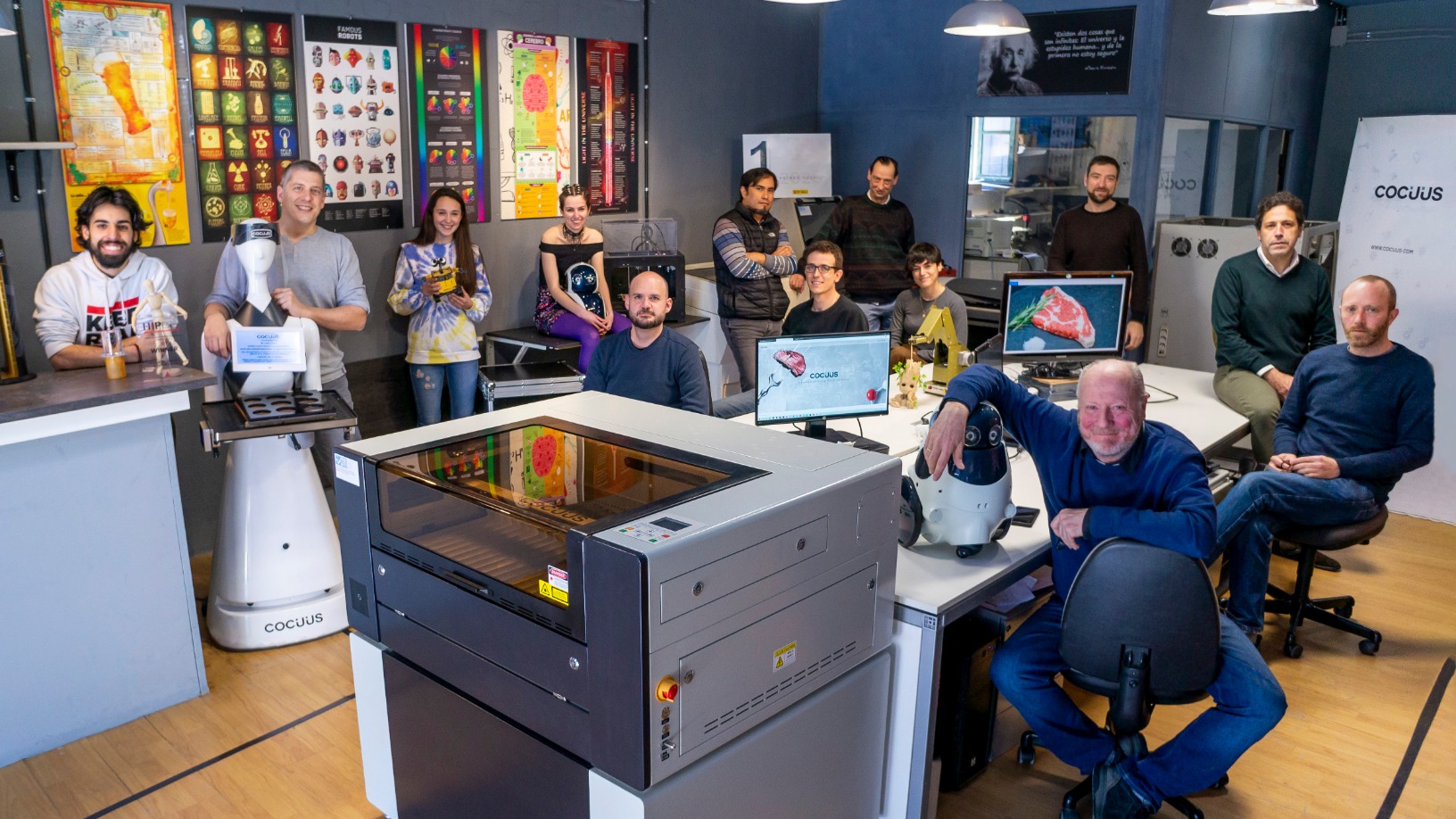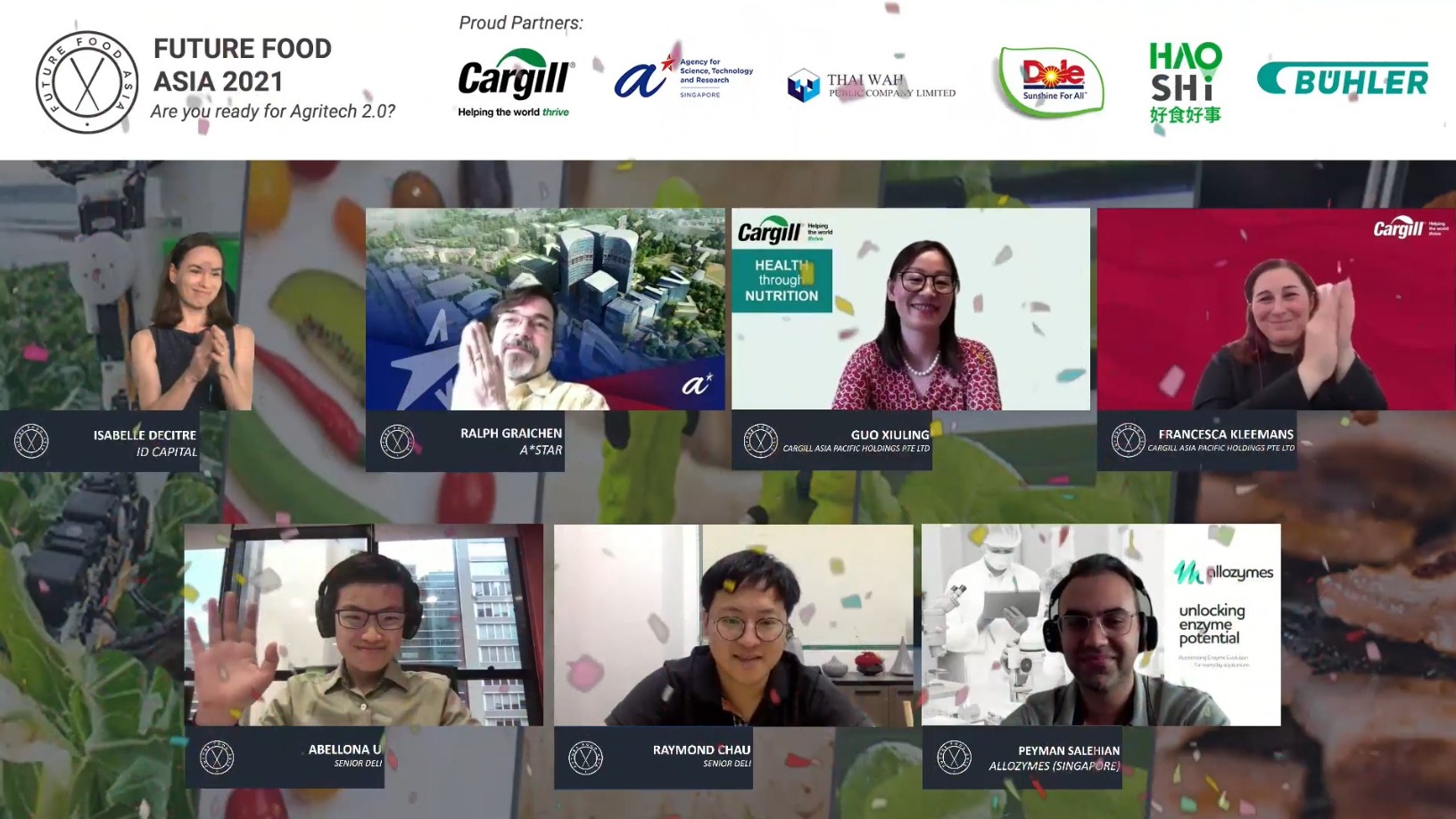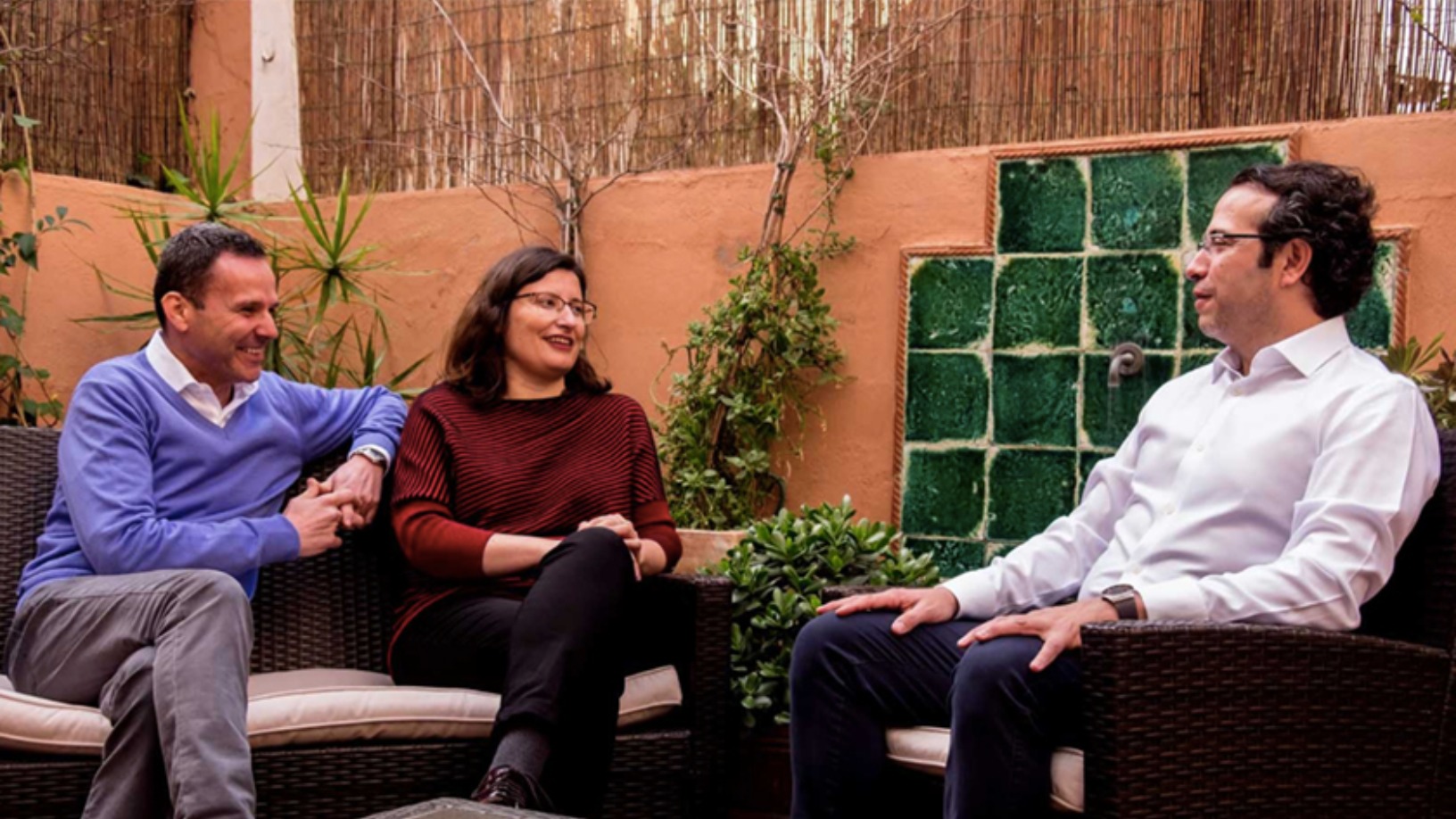After Sandy Chung’s grandfather suffered a stroke some years ago, he had difficulty swallowing food and had to switch to a liquid diet. He wasn’t alone. Up to 30% of elderly people suffer dysphagia or difficulty in swallowing. Such people often have a limited range of safe food options, such as purees, which sometimes may be unappetizing. Studies have shown this limited choice can reduce food intake and cause malnutrition or ill health.
In Hong Kong, where Chung is from, dysphagia diet meals are mostly imported from Japan and are costly; they also often taste unfamiliar. To provide her grandfather and other local dysphagia sufferers with more affordable food options, Chung teamed up with five other young local professionals, with backgrounds ranging from business management to medicine.
Together, they set up Senior Deli in Hong Kong in 2019 to provide dysphagia-friendly food. Sales commenced in December 2020 after one year of R&D led by co-founders Abellona U, who holds a PhD in clinical medicine research from Imperial College London, and Albert Cheung, who has a PhD from Cambridge University.
Designed by dietitians and catering specialists, Senior Deli’s texture-modified ready-to-eat meals include soft bite-sized foods, minced and moist foods, purees, and pre-packaged soft meals, such as beef with carrot. They are made using proprietary technologies, including enzyme engineering to break down the fiber in foods, and vacuum impregnation, which helps inject enzymes into food. These allow the company to modify the texture of different foods while maintaining their original form and nutritional content.
“Our meals look exactly the same as the [traditional Cantonese dishes Hong Kong people] eat every day,” said U. “It’s just that through our processing, they are much softer,” she added.
The startup, which has filed for five utility patents, has not sought to raise funds but has won multiple awards and received over RMB 10m in prize money, including the $100,000 it received as co-winner of the startup pitch contest at Future Food Asia 2021 this June and RMB 3m at the Global Bio-Economy Innovation & Entrepreneurship Competition in 2020.
“We are still at a very early stage. Winning awards at startup competitions is the only way to introduce Senior Deli to more people,” said CEO and co-founder Raymond Chau. The startup has been accepted into a handful of incubator programs at home and overseas, including the University of Cambridge’s ideaSpace and Hong Kong University’s iDendron.
Up to 50% cheaper than imports
Senior Deli’s products include food and drink thickeners, a food softener, food gellant, ready-to-eat soft meals and whey protein to help dysphagia patients maintain a balanced diet. It has laboratories in the Hong Kong University of Science and Technology and Shenzhen Research Institute of the Chinese University of Hong Kong.
It manufactures all its products in mainland China using a production line it designed itself. This has enabled the company to offer its products at 30–50% lower prices than imported alternatives. For example, a pre-packaged soft meal of broccoli with beef imported from Japan costs up to HK$60 (HK$1 = $0.13), but Senior Deli has brought that down to HK$25.
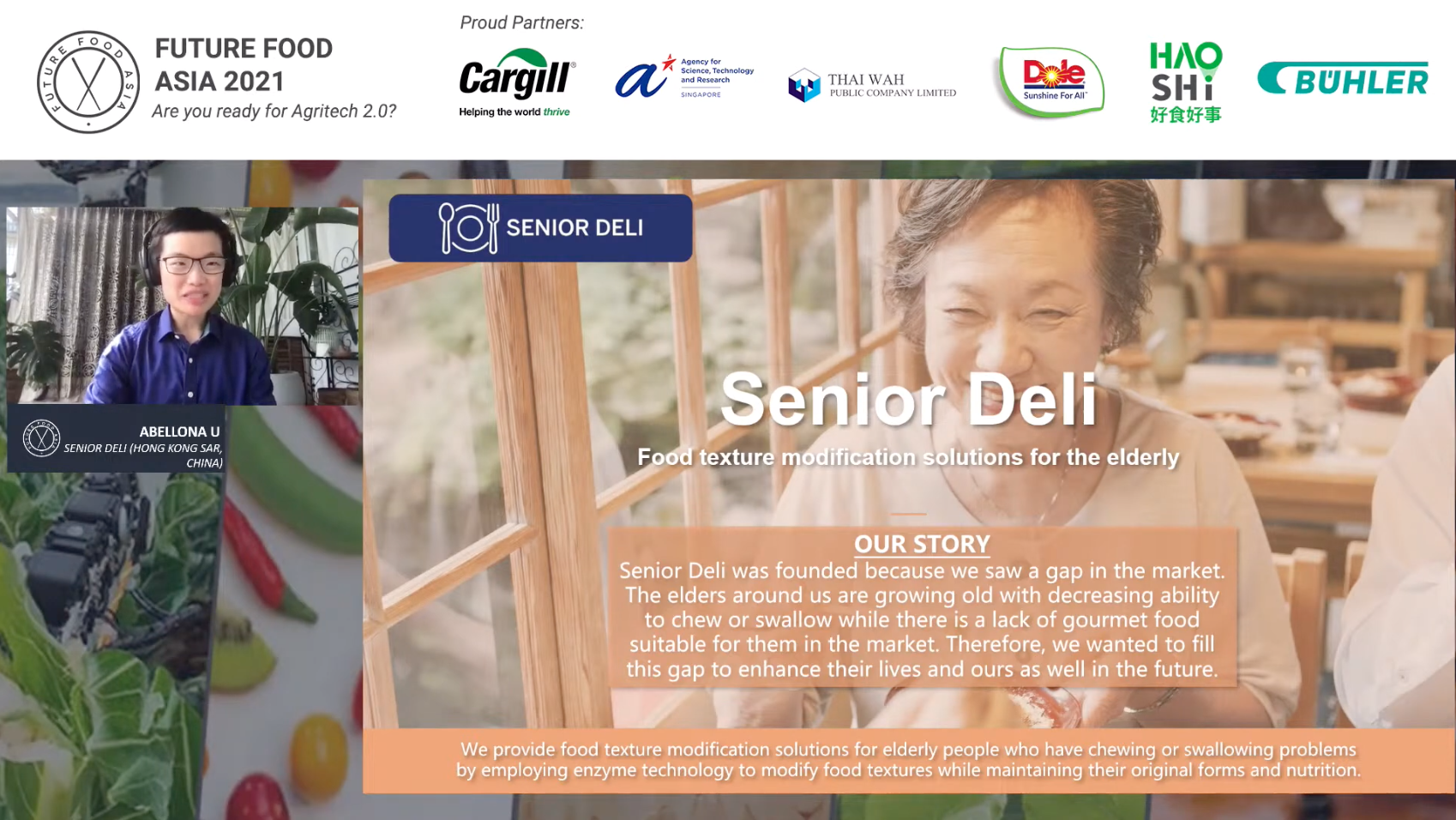
Besides supplying to over 200 nursing homes and hospitals in Hong Kong, Macau and mainland China, Senior Deli also sells its products at supermarkets and pharmacies and on e-marketplaces such as Tmall and JD.com in mainland China and HKTVMall in Hong Kong. The company’s monthly revenue is now HK$500,000.
“Mainland China alone presents an RMB 2tn market,” Chau said. According to him, Senior Deli is the only domestic player in the space.
Catering to specific tastes
Compared to other techniques in the market, such as freeze-thaw infusion, Senior Deli’s technology softens food by an additional 22%. This means that fewer nutrients are lost because the food does not need to be cooked as long to achieve the requisite softness. For example, lotus roots softened using Senior Deli’s technology are 93% softer yet preserve six times the vitamin C than lotus roots softened by prolonged cooking.
Importantly, consumers don’t need to make too many changes to the way they cook at home when using Senior Deli’s products. They only need to soak their ingredients in a solution containing Senior Deli’s softener powder or add food gellant to the purees they prepare before cooking them the normal way.
To better cater to the tastes of elderly people, the Senior Deli team used results of surveys and feedback from relevant institutions and consumers. They visited care homes across the city of Hong Kong, preparing soft meals on the spot and introducing Senior Deli products to residents and their carers.
The insights gained led to further product development and refinement. For example, after finding out that whey powder is commonly added into congee or milk to help the elderly increase protein intake, but many complain about its taste, Senior Deli developed a flavorless whey protein powder that could be added to any drink or liquid food.
Senior Deli plans to sell its products directly to restaurants as well. “If a restaurant can offer soft meal dishes, everyone can enjoy dinner together on one table when we dine out with elderly members of the family who have special needs,” U said while pitching at FFA 2021. “[This is] very important [in] East Asian culture.”
Strong government support
Senior Deli has seen increased interest from government bodies as an aging population becomes a pressing issue in China. Since its launch, Senior Deli has received over $2m cash subsidies and $280,000 annual rental rebates from the Hong Kong and mainland China governments. The support also covers the salary of two full-time specialist employees, both PhD holders.
“I wouldn't say we rely on government support, but we hugely benefited from [it],” U said.
In 2018, China’s National Center for Food Safety Risk Assessment defined “easily ingested food” for the first time as food with improved physical properties to accommodate difficulty in chewing or swallowing among the elderly. The same year, China introduced a new draft national standard for the manufacturing and labeling of food for elderly people, which included easily ingested food. Senior Deli is now in talks with authorities in Guangzhou and Shanghai to supply meals to government-run nursing homes.
In Hong Kong, the government allocated HK$75m in its 2020–21 budget for subsidized elderly service units to provide soft meals to residents with swallowing difficulties. According to U, many of those nursing homes have shown interest in Senior Deli’s products.
While it continues to expand in Greater China, Senior Deli is setting its sights further. The company is eyeing the US market, with plans to retail its products on Amazon for a start.
